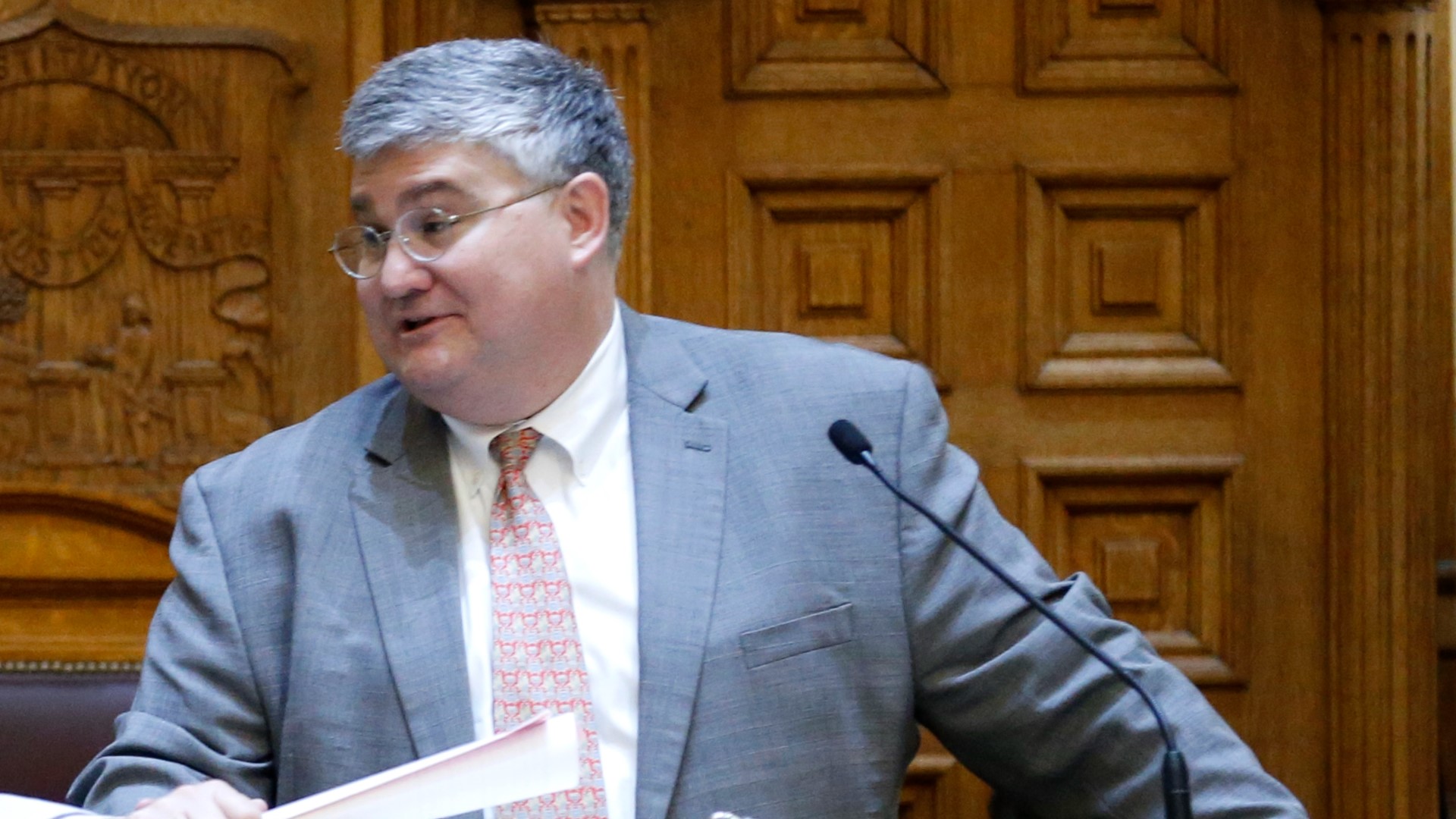ATLANTA — Attorneys for the former chair of Georgia's Republican Party argue their client shouldn't be prosecuted for the actions he took to support Donald Trump in the weeks after the 2020 election.
Lawyers Craig Gillen, Holly Pierson and Anthony Lake sent a 13-page letter to Fulton County District Attorney Fani Willis on Tuesday that argued David Shafer's actions were constitutionally protected and the state lacks the proper jurisdiction to pursue charges.
Shafer, who oversaw the Dec. 14, 2020 meeting where 16 Georgia Republicans cast Electoral College ballots claiming Trump won the election, is a person of interest in the election investigation being handled by Atlanta prosecutors.
Willis is expected to announce indictments in August, and at least half of Georgia's Trump electors have taken immunity deals, according to court documents.
The district attorney's office declined to comment on the letter.
The attorneys — who argue that Shafer is protected by the Georgia Constitution as well as the First, Fifth and Fourteenth Amendments to the U.S. Constitution — included an "expert declaration" from George Mason University law professor Todd Zywicki.
Zywicki, who has published work on laws governing presidential elections and transitions, said Georgia's Republican electors "acted in a responsible, proper and lawful manner."
"Any suggestion that they could be 'criminal' ignores legal and historical precedent, the reasoned advice of legal counsel received, and the plain language of the Constitution, federal and Georgia law," Zywicki wrote.
Zywicki and the attorneys have argued that Georgia's Trump electors took the same actions as Hawaii's 1960 Democratic presidential electors.
In that election, John F. Kennedy had already secured enough Electoral College votes to win the presidency, but Richard Nixon was declared the winner in Hawaii by 140 votes.
Democrats challenged the results, and a court-ordered recount was ongoing. With the results disputed, both electors met and sent their ballots to Congress.
The recount found that Kennedy won by 115 votes, and the state's electoral votes went to Kennedy.
In Georgia, a legal challenge filed by Trump and Shafer was still pending when the electors met, and the 16 Republicans were acting on the advice of legal counsel, Zywicki wrote.
"In light of the 1960 Hawaii precedent and the widespread support from elected officials and legal scholars that the execution and submission of both presidential electoral ballots in a close election has received since then, reasonable attorneys could not have predicted that a presidential elector in 2020 taking the same actions taken in Hawaii in 1960 could or would be viewed anything but entirely proper," he said.
Other constitutional law professors have rejected the argument that Shafer's actions were protected. Georgia State University College of Law professor Anthony Kreis said the questions surrounding Shafer are centered around what he knew and how much he knew about the Trump team's larger plans involving electors rather than constitutional rights.
"This is constitutional weak sauce," Kreis said. "If people make a mistake and they make an honest error in submitting something to the government, it's not necessarily criminal. But as soon as you have the intent to defraud and as soon as there's evidence you're part of a larger scheme... then those innocent mistakes are criminalized."
Shafer's attorneys sent the letter the same day as Michigan Attorney General Dana Nessel filed charges against that state's slate of 16 Republican electors. The Department of Justice and special counsel Jack Smith have also turned their attention to the Trump elector scheme as part of its widening election probe.
The letter marks the fifth time since December 2022 that Shafer's attorneys have requested a meeting with prosecutors.
Shafer, who led the state GOP until June, revealed earlier this year that the party paid for the electors' attorneys fees.
Last year, the party paid Strickland Debrow of Newnan, GA, about $170,000. Atlanta-based Pierson Law LLC received roughly $52,000 from the Georgia GOP.
Kimberly Debrow represented half of the Trump electors while Pierson represents Shafer.
In recently filed campaign disclosures reviewed by 11Alive, the Georgia Republican Party paid Strickland Debrow nearly $273,000 during the first six months of 2023. Gillen, Withers & Lake received roughly $46,000 over the same period. Gillen and Lake are the other two attorneys representing Shafer.

